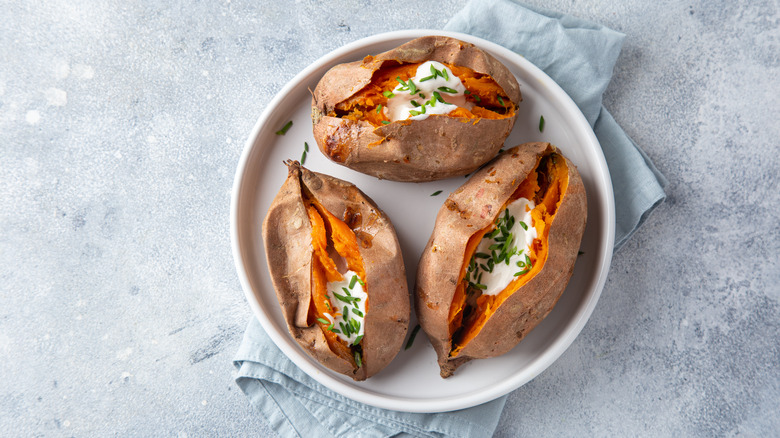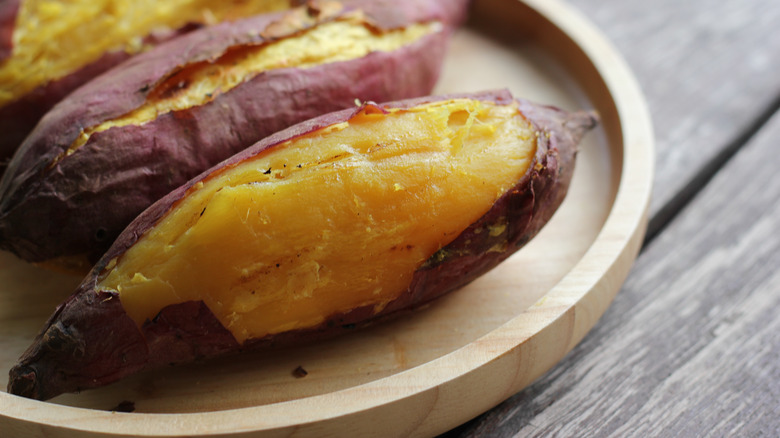Why You Shouldn't Pierce Sweet Potatoes Before Cooking
For those of us who love root vegetables but sometimes tire of regular ol' potatoes, sweet potatoes make a wonderful alternative that are delicious and nutritious in their own right. Sweet potatoes can sub in for almost any potato preparation, from mashed potatoes to fries to hash browns, and they feature a deeply sweet flavor as well as a moist and steamy texture (via MyRecipes). Plus, sweet potatoes are lauded for their nutritional profile, rich in vitamins, minerals, antioxidants, and fiber, which can promote gut health and may even help fight cancer (via Healthline).
For those of us craving a sweet potato side dish that's dead simple, it's pretty hard to beat a baked sweet potato. Much like a regular baked potato, the side is a great accompaniment to a huge range of dishes, from roast chicken to pork chops to meatloaf. As any of us who have baked any kind of potato know, there's not much to the dish; however, it's generally advised to prick a few holes in the spud before baking (via Food52). But if you want to skip this step and just toss your sweet potato right into the oven, feel free to go for it.
Pricking a potato leads to loss of moisture and sweetness
If you've been counseled to prick either a potato or a sweet potato before baking, you're not alone. According to Food52, this cooking advice is common, supposedly preventing the tubers from exploding in a hot oven. In theory, the outlet explains, moisture could build up inside an un-pricked potato with no outlet for steam. Food52's test kitchen actually ran an experiment to see if pricking potatoes is necessary and found almost no difference between pricked and un-pricked potatoes. Exploding potatoes seem to be a fairly uncommon — but not impossible — phenomenon.
According to Lifehacker, there's no reason to prick a sweet potato before baking — and doing so could result in a less delicious dish. The outlet writes that rather than the sweet potato's skin acting as a dangerous and possibly explosive container for the potato's flesh, it's actually the "perfect roasting packet for the tuber's fluffy interior." If you pierce the skin, Lifehacker explains, you risk too much steam and sugar escaping during baking, leaving a dry, bland sweet potato instead of a dense, moist, and complex-tasting one. The outlet notes that exploding potatoes seem to be rare, and that whole, unpierced sweet potato skin will peel away very easily after the tuber is baked. So, the next time you're craving a baked sweet potato, all you have to do is plunk a whole tater into a hot oven, bake it for about an hour, then peel away the skin and enjoy.

